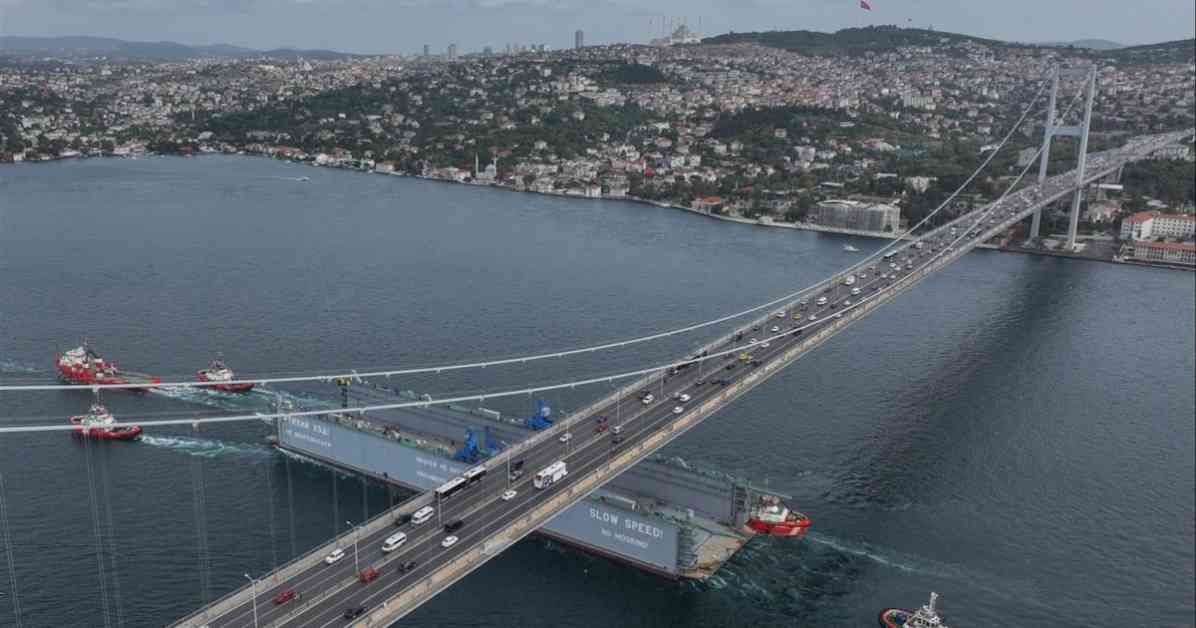The Istanbul Bosphorus, a vital waterway that connects the Black Sea to the Sea of Marmara, has been closed for two-way ship traffic due to ongoing maintenance work. This closure, which began on Monday, is expected to last for several days, causing disruptions to maritime transportation in the region.
The Importance of the Istanbul Bosphorus
The Istanbul Bosphorus is one of the busiest waterways in the world, serving as a crucial route for international trade and transportation. Every day, hundreds of ships pass through the strait, carrying goods and passengers between Europe and Asia. The closure of the Bosphorus for two-way ship traffic is a rare occurrence that highlights the importance of proper maintenance and management of this key maritime artery.
Impact on Maritime Traffic
The closure of the Bosphorus for two-way ship traffic has already had a significant impact on maritime traffic in the region. Ships are being rerouted through alternative routes, causing delays and increased costs for shipping companies. The closure has also affected local businesses that rely on the Bosphorus for their operations, such as ferry services and tour boats.
According to Turkish maritime authorities, the closure is necessary to carry out essential maintenance work on the Bosphorus, including dredging operations to remove sediment and debris that have accumulated in the waterway. This maintenance work is crucial to ensure the safe and efficient passage of ships through the strait, as well as to protect the environment and prevent pollution.
Alternative Routes and Contingency Plans
In response to the closure of the Bosphorus for two-way ship traffic, shipping companies have been forced to seek alternative routes for their vessels. Some ships are being rerouted through the Dardanelles, another important strait that connects the Aegean Sea to the Sea of Marmara. While this alternative route adds time and costs to shipping operations, it is necessary to avoid further disruptions.
Maritime authorities have also implemented contingency plans to manage the closure of the Bosphorus and minimize its impact on maritime traffic. These plans include increased monitoring of alternative routes, coordination with shipping companies, and communication with port authorities to ensure the smooth flow of goods and passengers through the region.
In conclusion, the closure of the Istanbul Bosphorus for two-way ship traffic highlights the importance of proper maintenance and management of this key maritime artery. While the closure may cause disruptions to maritime traffic in the short term, it is necessary to ensure the long-term safety and efficiency of this vital waterway. By implementing alternative routes and contingency plans, maritime authorities are working to minimize the impact of the closure and ensure the continued flow of goods and passengers through the region.











